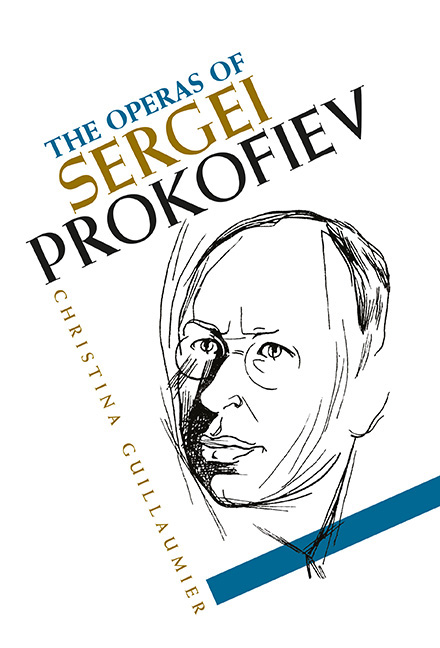Book contents
- Frontmatter
- Dedication
- Contents
- List of Illustrations
- Acknowledgements
- Note on transliteration, abbreviations and sources
- Introduction: Prokofiev and Opera
- 1 Early Operatic Experiments and Maddalena
- 2 Between Opera and Theatre: Radicalisation of Style in The Gambler
- 3 A Successful Enterprise: Love for Three Oranges
- 4 The Devil Within: Theatre and Spectacle in The Fiery Angel
- 5 Towards a Soviet Operatic Style: Semyon Kotko
- 6 Betrothal in a Monastery and the Retreat from Ideology
- 7 War and Peace: The Prokofievan Operatic Ideal?
- 8 Dramaturgical Re-evaluation in The Story of a Real Man
- Epilogue
- Synopses
- Bibliography
- Index
1 - Early Operatic Experiments and Maddalena
Published online by Cambridge University Press: 28 April 2020
- Frontmatter
- Dedication
- Contents
- List of Illustrations
- Acknowledgements
- Note on transliteration, abbreviations and sources
- Introduction: Prokofiev and Opera
- 1 Early Operatic Experiments and Maddalena
- 2 Between Opera and Theatre: Radicalisation of Style in The Gambler
- 3 A Successful Enterprise: Love for Three Oranges
- 4 The Devil Within: Theatre and Spectacle in The Fiery Angel
- 5 Towards a Soviet Operatic Style: Semyon Kotko
- 6 Betrothal in a Monastery and the Retreat from Ideology
- 7 War and Peace: The Prokofievan Operatic Ideal?
- 8 Dramaturgical Re-evaluation in The Story of a Real Man
- Epilogue
- Synopses
- Bibliography
- Index
Summary
Among Prokofiev's early works are four operas: The Giant, On Desert Islands, A Feast in Time of Plague, and Undina. By 1900, Prokofiev was writing his first opera, The Giant. As a work written for the piano, specifically for Prokofiev himself to play, The Giant provides crucial insight into what the composer's early piano playing was like, complementing the evidence available to us through the early Little Songs (Pesenki) for the instrument. Prokofiev would continue to engage with qualities already evident in The Giant even in his mature phase. Written in piano score, with the voice parts superimposed, this work reveals the origins behind the lasting love affair Prokofiev was to have with the stage.
The Giant seems to have been inspired by Prokofiev's first trip to Moscow with his parents in January 1900. This was possibly the young composer's first experience of the stage. He was taken to see Gounod's Faust, Borodin's Prince Igor, and Tchaikovsky’s Sleeping Beauty. Prokofiev notes in his memoir that this event marked an important landmark in his relationship with music, evident in his compositions of the period, which begin to reveal a heightened interest in the dramatic and the theatrical: ‘I began to stage plays. The plots were wretched and invariably included a duel with swords. In terms of form, this was commedia dell’arte: we would think up a skeletal plot, and then the actors would improvise.’ During his first four years of composing, between 1896 and 1900, Prokofiev had only written music for piano, possibly because that was the only instrument he was familiar with. After his trip to the opera his imagination turned towards the stage and its newfound possibilities. The process of writing for the stage meant that the young composer could play and act out little shows with family and friends. It gave him the freedom to create exciting and imaginative music to support a fantasy storyline he had designed, initially with the participation of friends. And finally, writing music for the stage almost automatically assumed the presence of a captive audience, an element of performing that already fascinated the composer.
Prokofiev's first encounter with the theatre, especially Faust, captured his imagination. In his own words, ‘the duel with swords and the death of Valentine impressed me’.
- Type
- Chapter
- Information
- The Operas of Sergei Prokofiev , pp. 9 - 32Publisher: Boydell & BrewerPrint publication year: 2020



